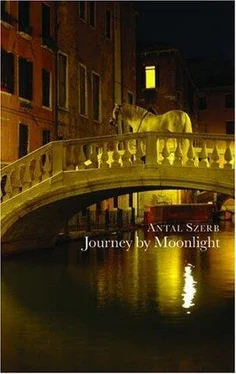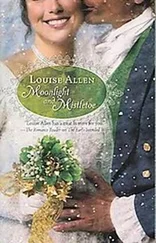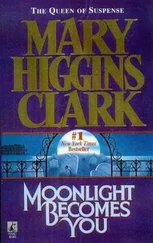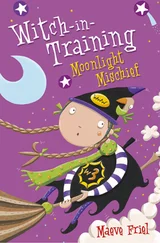Mihály was on the point of leaving when he noticed a small cluster of tombs standing apart in one corner of the cemetery. He went over and perused the inscriptions on the plain Empire-stones. One of them read simply, in English: “Here lies one whose name is writ in water”. On the second a longer text declared that there lay Severn, the painter, the best friend and faithful nurse on his death-bed of John Keats, the great English poet, who had insisted that his name should not be inscribed on the neighbouring stone, under which he lay.
Mihály’s eyes filled with tears. So here lay Keats, the greatest poet since the world began … though such emotion was somewhat irrational, given that the body had been lying there for a very long time, and the spirit was preserved by his verses more faithfully than by any grave-pit. But so wonderful, so truly English, was the manner of this gentle compromise, this innocent sophistry, that perfectly respected his last wishes but nonetheless announced without ambiguity that it was indeed Keats who lay beneath the stone.
When he raised his eyes some rather unusual people were standing beside him. They were an enchantingly beautiful and undoubtedly English woman, a second woman dressed as a nurse, and two lovely English children, a little boy and girl. They simply stood motionless, looking rather awkwardly at the grave, at each other, and at Mihály. He stood and waited for them to say something, but they did not speak. After a while an elegant gentleman arrived, with the same expressionless face as the others. He bore a strong resemblance to his wife: they might have been twins, or at least brother and sister. He stood before the grave, and the wife pointed out the inscription. The Englishman nodded, and with great solemnity and some embarrassment gazed in turn at the grave, at his family, and at Mihály. And he too said nothing. Mihály moved a step further away, thinking that perhaps they were discomposed by his presence, but they simply remained standing, nodding from time to time, and looking self-consciously at one another. The two children’s faces were every bit as embarrassed and blankly beautiful as the adults’.
As he was turning away, Mihály suddenly stared at them with undisguised astonishment. He felt that they were not human but ghostly dolls, mindless automata standing here over the poet’s grave: inexplicable beings. Had they not been so very beautiful perhaps they would have been less astonishing, but they had the inhuman beauty of people in advertisements, and he was filled with an unspeakable horror.
Then the English family moved away, slowly and still nodding, and Mihály recovered himself. In sober consciousness he reviewed the past few minutes, and became truly anxious.
“What’s wrong with me? What sort of mental state have I fallen into again? It was like a dark, shameful reminder of my adolescence. These people were quite clearly nothing other than self-conscious, thoroughly stupid English, confronted by the fact that this was Keats’s grave and not knowing where to begin, perhaps because they had no idea who Keats was. Or perhaps they knew, but couldn’t think how to behave appropriately at the grave of Keats the famous Englishman, and because of this they were embarrassed in front of each other and of me. A more insignificant or banal scene you really couldn’t imagine, and yet I immediately thought of the most unspeakable horror in the world. Yes. Horror isn’t at its most intense in things of night and fear. It’s when you are staring in full sunlight at some mundane thing, a shop window, an unknown face, between the branches of a tree … ”
He thrust his hands in his pockets and quickly made his way back.
He decided that he would travel home the next day. It was too late to leave that day, because Tivadar’s letter had not arrived much before noon. He would have to wait until morning to change the cheque he had been sent, and to despatch the money he owed to Millicent. He was spending his last night in Rome. He wandered around the streets with an even greater sense of surrender than before, and found everything even more charged with significance.
He was bidding farewell to Rome. It was not particular buildings that had found their way into his heart. The overwhelming experience was of the life of the city itself. He wandered aimless and uncertain, with the feeling that tucked away in the city were still thousands upon thousands of districts he would now never see. And again he had the feeling that the really important things were happening elsewhere, where he was not; that he had missed the secret signal. His road led absolutely nowhere and his nostalgia now would gnaw him eternally, remain eternally unquenched, until he too departed, Die Pyramide vorbei, leise zum Orcus hinab …
The light was fading and Mihály walked with lowered head, hardly noticing even the streets, until, in a dark alleyway, he bumped into someone, who muttered, “sorry”. Hearing the English word, he looked up and saw before him the young Englishman who had so struck him at Keats’s grave. There must have been something in Mihály’s face as he looked at the Englishman, for he raised his hat, murmured something, and hurried off. Mihály turned and stared after him.
But only for a moment. Then, with determined footsteps, he hurried after him, without thinking why he did. As a boy, under the influence of detective novels, one of his favourite pastimes had been to fall in suddenly behind some unknown person and to track him, taking great care not to be noticed, sometimes for long hours. He would not follow just anyone. The chosen person had to have been revealed to him by some means, some cabalistic sign, as had this young Englishman. It could not have been by empty chance that in all this vast city he had met him twice on the same day, and that day such a significant one, and that in both of them the meeting had produced such unprovoked astonishment. Some secret lay hidden in this, and he would have to follow it to its end.
With the excitement of a detective he tracked the Englishman through the narrow streets to the Corso Umberto. He had not lost his boyhood skill. He could still follow unobserved, like a shadow. His quarry walked up and down the Corso for a while, then took a chair on a café terrace. Mihály also sat down, drank a vermouth, and watched him in a fever of anticipation. He knew that something must happen. He had the impression that the Englishman was no longer as calm and expressionless as he had been at the graveside. Under the regular lines of his face and the alarming clarity of his skin some strange life seemed to be throbbing. Of course the restlessness showed on his impeccable English surface no more than the wing of a bird brushing the surface of a lake. But restless he certainly was. Mihály knew that the man was waiting for someone, and he too was infected with the apprehension of waiting, which was amplified in him like a voice through a megaphone.
The Englishman began to glance repeatedly at his watch, and Mihály could hardly bear to remain in his seat. He fidgeted, ordered yet another vermouth, then a maraschino. This was no time for economising. Anyway, he was going home the next day.
At last an elegant limousine drew up outside the café, the door opened and a woman glanced out. Instantly the Englishman sprang up and disappeared into the car, which moved off smoothly and silently.
It took but an instant. The woman had appeared in the open car door for no more than a moment, but Mihály had recognised her, as much by intuition as by sight. It was Éva Ulpius. He too had leapt to his feet, had seen her glance fall on him for just a moment, and caught the very faint smile that appeared on her face. But it was over in a flash, and Éva had disappeared inside the car and vanished into the night.
Читать дальше












